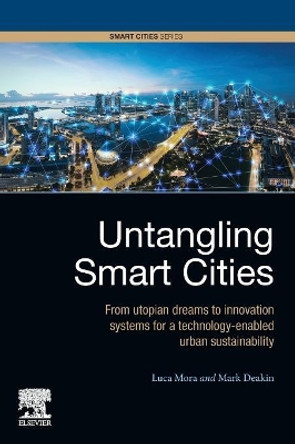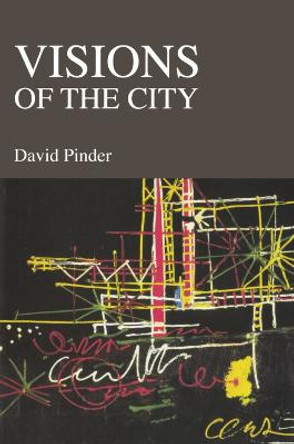Description
WINNER OF THE 2022 WRITERS' TRUST BALSILLIE PRIZE FOR PUBLIC POLICY
SHORTLISTED FOR THE 2022 DONNER BOOK PRIZE
WINNER OF THE PATTIS FAMILY FOUNDATION GLOBAL CITIES BOOK AWARD
Is the 'smart city' the utopia we've been waiting for?
The promise of the so-called smart city has been at the forefront of urban planning and development since the early 2010s, and the tech industry that supplies smart city software and hardware is now worth hundreds of billions a year.
But the ideas and approaches underpinning smart city tech raise tough and important questions about the future of urban communities, surveillance, automation, and public participation. The smart city era, moreover, belongs firmly in a longer historical narrative about cities - one defined by utopian ideologies, architectural visions, and technological fantasies.
Smart streetlights, water and air quality tracking, autonomous vehicles: with examples from all over the world, including New York, Los Angeles, Boston, Portland, and Chicago, Dream States unpacks the world of smart city tech, but also situates this important shift in city-building into a broader story about why we still dream about perfect places.
"John Lorinc's incisive analysis in Dream States reminds us that the search for urban utopia is not new. Throughout the book, Lorinc underscores the fact that a gamut of urban innovations - from smart city megaprojects to e-government to pandemic preparedness tools - only provide promise when scrutinized together with the political, economic, social, and physical complexities of urban life." - Shauna Brail, University of Toronto
"Dream States: Smart Cities, Technology, and the Pursuit of Urban Utopias takes us on a fascinating journey across world cities to show how technology has shaped them in the past and how smart city technology will reshape them in the future. This book is essential reading for policy makers, researchers, and practitioners interested in understanding the opportunities and challenges of smart city technology and what it means for city building." - Enid Slack, University of Toronto School of Cities
""Utopia may be the oldest grift in the city-building business, but Dream States shows that technology is a timeless tool for turning the most ordinary of urban dreams - clean air and water, safe streets, and decent homes - into reality. As digital dilettantes try to sell us on a software overhaul, John Lorinc provides us an indispensable and flawless guide to the must-haves and never-agains of the smart city." - Anthony Townsend, Urbanist in Residence, Cornell Tech, author of Smart Cities
About the Author
John Lorinc is a Toronto freelance journalist and editor. He writes about cities, politics, business, climate change, and local history for various media, including Spacing magazine, the Globe and Mail, the Toronto Star, The Walrus, Corporate Knights, and, previously, the New York Times, the Washington Post, and Readers' Digest. John has won numerous National Magazine Awards for his journalism and was the 2019-20 Atkinson Fellow in Public Policy, which produced a series of ten articles on smart cities that were the basis of Dream States. He is the author of three previous books, including The New City (Penguin, 2006), and has co-edited several Coach House uTOpia anthologies, including The Ward: The Life and Loss of Toronto's First Immigrant Neighbourhood (2015) and Any Other Way: How Toronto Got Queer (2017).
Reviews
"Lorinc unpacks both the hype and genuine promise in technology to make everything from the street lighting to water quality in cities better, with examples from Barcelona, New York, Los Angeles, and other cities." - Bloomberg Cities Network
" Lorinc's effort responds to a much-needed update on smart cities technology, combining a specific case study with a complete analysis of the arrays of technologies that constitute the panoply of technology that might make a city 'smart'." - Giulia Belloni, Urban Studies
"Dream States reminds us from the outset that cities have been homes to technological innovations since people started gathering together in settlements. The bright, shiny, emergent nature of digital technology sometimes leaves planners wringing their hands, uncertain how to proceed. But Lorinc's historical grounding of smart city tech- nology in the context of construction technology, water and sewage networks, and electricity and communications systems is an important reminder that, whether analog or digital, planners have been dealing with infrastructure for hundreds of years." - Pamela Robinson, Journal of the American Planning Association
Book Information
ISBN 9781552454282
Author John Lorinc
Format Paperback
Page Count 176
Imprint Coach House Books
Publisher Coach House Books









